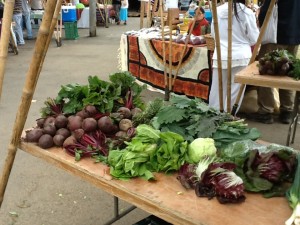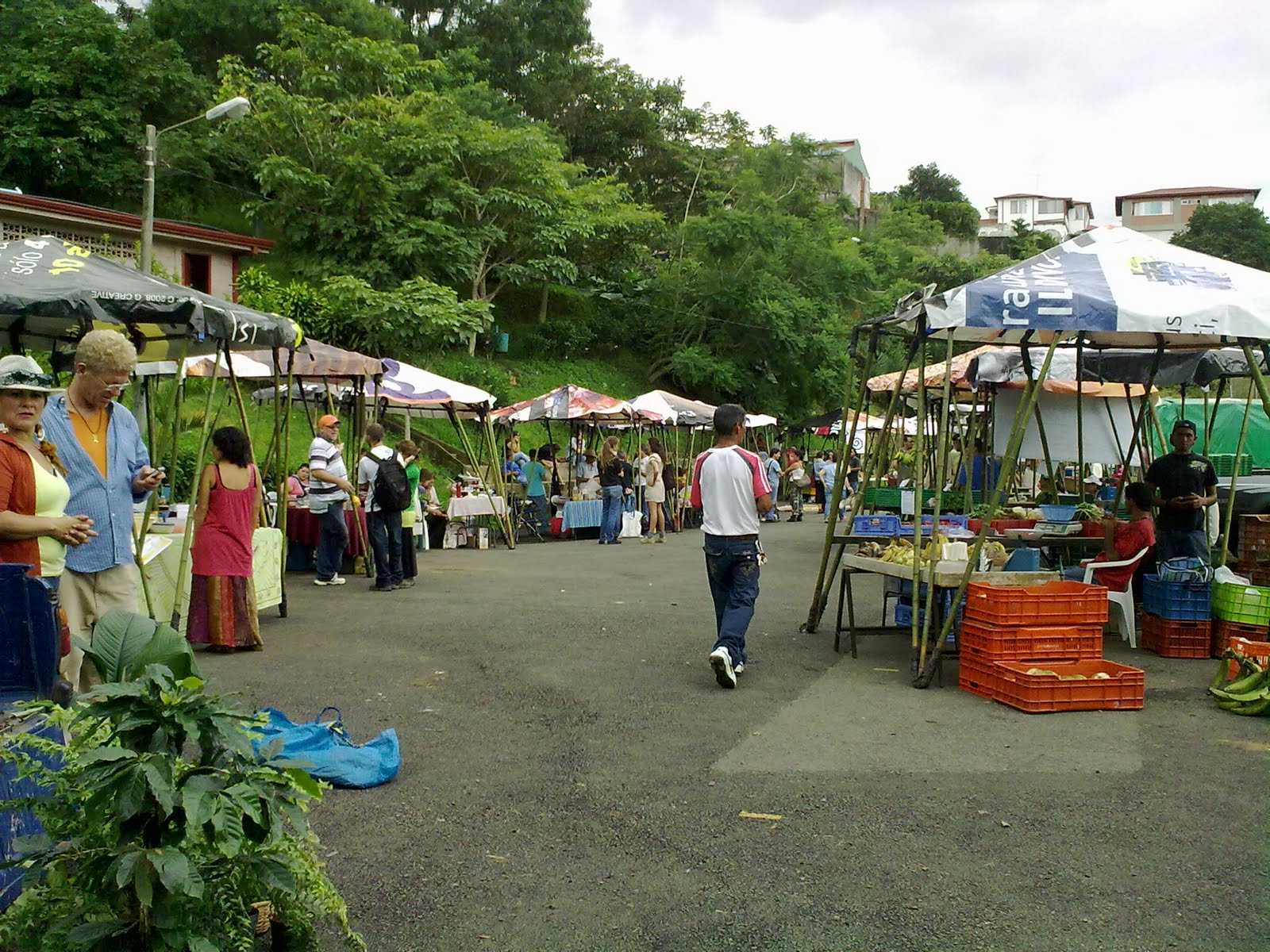The key word in this exhibition of the farmer is “harmony.” It applies to nature applies to health and the relationship between consumers and sellers. This market is the “Feria Verde.” Takes place on Saturday mornings in the Aranjuez district sports center in San Jose, specializing in selling organic products.
 There are members of the new generation of that demand organic products, which promote the practice as a life philosophy.
There are members of the new generation of that demand organic products, which promote the practice as a life philosophy.
Last Saturday, many consumers made it clear that his goal is to go to healthy products to protect the environment, health and stimulate the producer.
“What we seek in this show is basically health. All fruits, vegetables, legumes and others that can be sold here are 100% healthy. The family is merely a matter of satisfaction one feels very happy and very safe to eat “said Rolando Garcia that day, after placing on the floor cloth bag where he loaded his cart.
That harmony, whose primary purpose is to preserve nature and human welfare, has a cost: the organic products are worth on average 20% more than those of conventional fairs, but in some cases are even triple the cost. The customer knows this and is willing to pay.
On Saturday June 9 at the Feria Verde, a kilo of potatoes was worth ¢ 1,300, while the retail price in conventional fairs was ¢ 360. In the tomato the price was ¢ 1,000 organic and 900 the common market, carrots ¢ 1,000 on a 290 in the other, and the onion ¢ 1,200 against 900.
An organic lettuce at the Feria Verde is worth ¢ 400 to ¢ 500 and ¢ 225 conventional fair, sweet chile and the difference is ¢ 150 to ¢ 300 against comparing the two markets.
The highest price for the consumer side, and the difficulties of produce without agrochemicals, by the farmer, hindering the development of this type of agriculture in the country, recognized the manager of the National Organic Agriculture, Mauricio Chacon.
“In conventional agriculture there are ‘technological packages’ that allow crops to adapt to the conditions of any kind by agrochemicals in organic knowledge is a process by which the farmer must solve problems without resorting to chemical applications,” Chacon recalled.
In Costa Rica, the Feria Verde and Feria del Trueque in San Cayetano, are the only two markets specializing in organic products, said Chacon. There is a small fair in Upala, an association of organic producers has a store on the road to Zarcero and an organic farm in Esparza has opened..
Large supermarket chains have specialized areas for certified products.
The law allows two forms of certification. One is through registered agencies in the State Phytosanitary Service and the other is the participation, in which producers, each other, and consumers regularly review practices.

